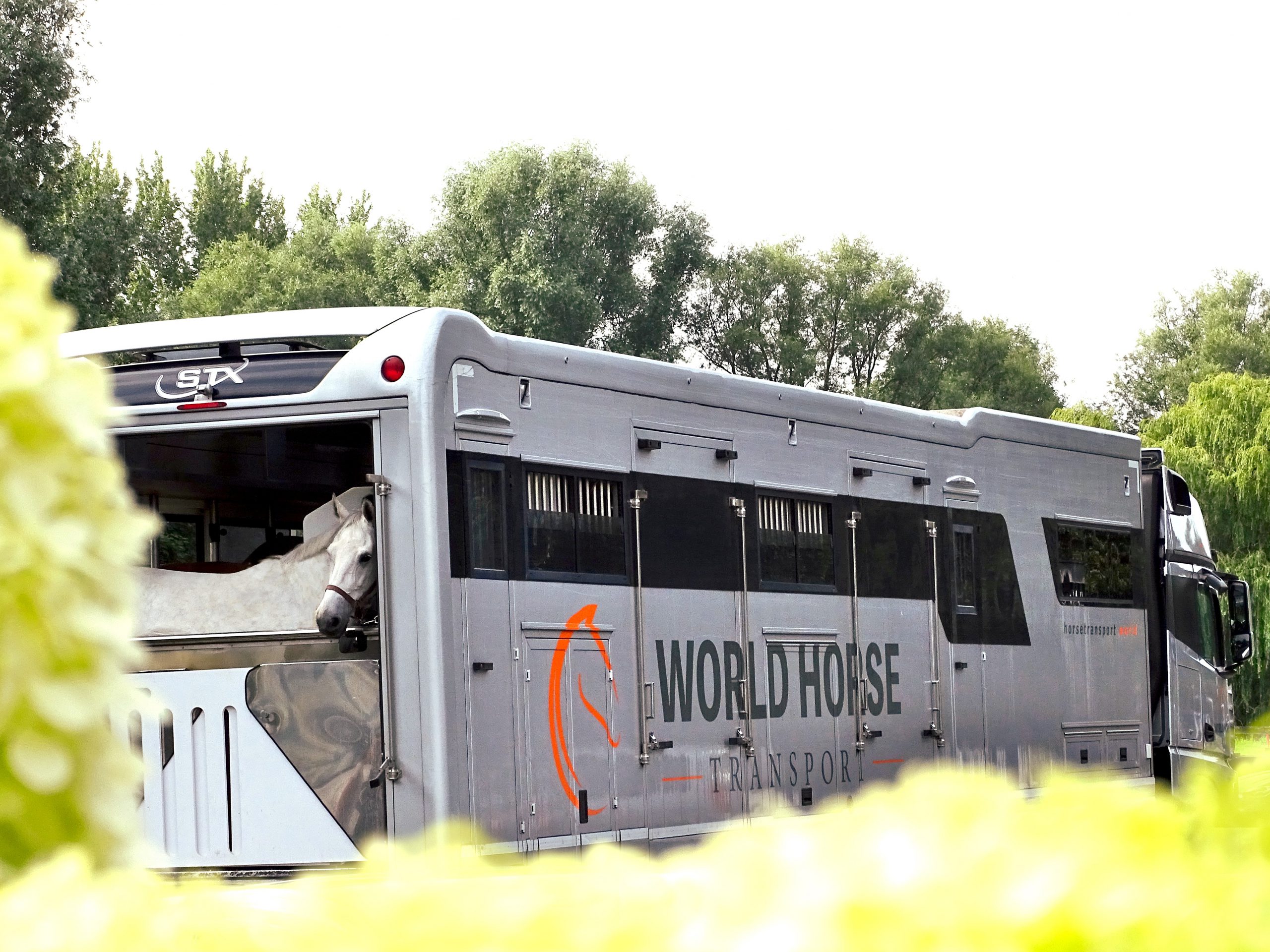FAQ
Frequently Asked Questions (FAQ)
Below you will find all frequently asked questions about transport. Feel free to read them. Do you still have questions or would you like to know more? Feel free to contact us by phone, or send us an e-mail.
Does my horse need to be vaccinated before transport?
No, this is not rerquired.
Does my horse need a blood test prior to transport?
No, this is not necessary. Unless your horse is going to another continent, or an EU country that requires it.
What does the pre-transport examination involve?
This is a separate examination prior to transport and is part of the Animal Health Law. For transport within Europe, your horse must be in possession of a health certificate. This declaration will only be issued after the inspection when everything is in order.

At this inspection general data will be checked. For example if the passport corresponds with the chip the horse is carrying. As soon as you book with us, we will take care of the rest of the necessary documents. In addition, we will partly assess whether the horse is fit and healthy enough to travel. In general, this inspection does not cause any problems.
Can I take things with my horse?
In case of a private transport it can be placed in the other part or a separate/extra trailer. In case of a combined transport this will be placed on the other horse-places in consultation. This must be possible! Always indicate this when requesting the transport with a clear description of the items! If you can take the stuff with you, pack it well with your name and delivery address. Also indicate it to the drivers so nothing is forgotten.
When it comes to heavy objects, for example a heavy saddlebox or similar, we also have a winch in the our big trucks. We can use this tool with this kind of heavy objects, so we can get (almost) everything on the truck. Should this be necessary.
Depending on the size and quantity, we charge for heavy and lots of equipment.
What does my horse need for transport?
During transport the horse needs to be chipped and have a corresponding passport. The passport will be kept by the driver(s) during transport.
In addition, the horse needs to wear a well fitting halter, with rope to be able to load and unload the horse. It is important that the halter is comfortable and does not cut or cause irritation. Rope dumbbells are therefore certainly not suitable for a horse to wear during transport.
Is my horse insured during transport?
Despite all precautions, horses are transported at the expense and risk of the owner/client. Extra insurance on request is possible.
My horse is difficult to load/not load, can it be transported? How about this?
This is not a problem, but please let us know in advance! This way we can take extra account of the circumstances. A number of our drivers are specialized in loading anxious and/or difficult to load horses. If the horse doesn’t want to load after a while and builds up so much stress, we can always give your horse an oral sedative. This will reduce the stress and your horse will often still experience the transport as pleasant. If this doesn’t help either, and your horse is still under a lot of stress, you can consult your vet for possible sedation. This way we want to make the transport as pleasant as possible for the horse. A good experience is often half the work for a possible next time.
My horse lost weight after transport, is that right?
A horse will definitely lose some weight during transport. Certainly (young) horses that experience a lot of stress or horses that are not used to travel can lose up to 100 Kg of weight. That much weight loss is not common, but it is possible. But fortunately this also only happens on transports of very long distances.
Tension and stress will cause horses to consume more energy and eat and drink worse. Our drivers and trucks are so experienced and equipped that any stress is reduced to a minimum.
Does my horse need a blanket and/or (transport) protectors during transport?
During road transport we always advise our customers not to put blankets and leg protectors on horses. The trucks are well ventilated, kept at temperature and are excellently equipped for this purpose. Especially during the somewhat longer transports it will perspire under a blanket and leg protectors. This perspiration is then poorly dissipated or often just gets worse, which makes the salt (which is also released during perspiration) irritate. This makes the horses restless and will damage themselves more. Should it still be cold outside in the winter, please put a wool or sweat blanket on your horse.
Our drivers put on the horses tail protectors to protect the tail root.
How long is my horse standing on the truck and where is my horse during the rest of the drivers?
A single driver may drive for a maximum of 4.5 hours twice, with a 45-minute rest between the two parts. So maximum travel per day is 10 hours.
On the longer distances we have always two drivers on the truck. We limit the travelling to 15-18 hours and in addition, there must be a change and/or rest every 4,5 hours. During this change and / or rest, the horses are always cared for and checked. This means that your horse will be on the truck for a maximum of 18 hours and that we will put fresh hay in the bags and water your horse every 4,5 hours.


After a time of a total of 18 hours (with the corresponding stops), we will put your horse on a by us selected ”rest stable” with again fresh hay and water. This also offers the horse the possibility to stretch their legs or just lie down for a while. After a rest of at least 10 hours they will continue their journey.
From how old can a foal be transported?
There are no laws and regulations for this. A foal may also be transported with its mother. When a foal (or mare) is transported alone, we strongly advise to wean the foal well in advance of transport. When the foal has only been weaned recently, or on the day of transport, we reserve the right to refuse transport for reasons of horse welfare. If the foal (or mare) is weaned too short in advance, the foal (or mare) will experience too much unnecessary stress.
What kind of pre-export tests should horses travelling from Europe to the USA undergo?
Piroplasmose, Equine Infectious Anemia, Glanders and Dourine. In addition, mares older than 731 days also have to undergo a CEM test.


